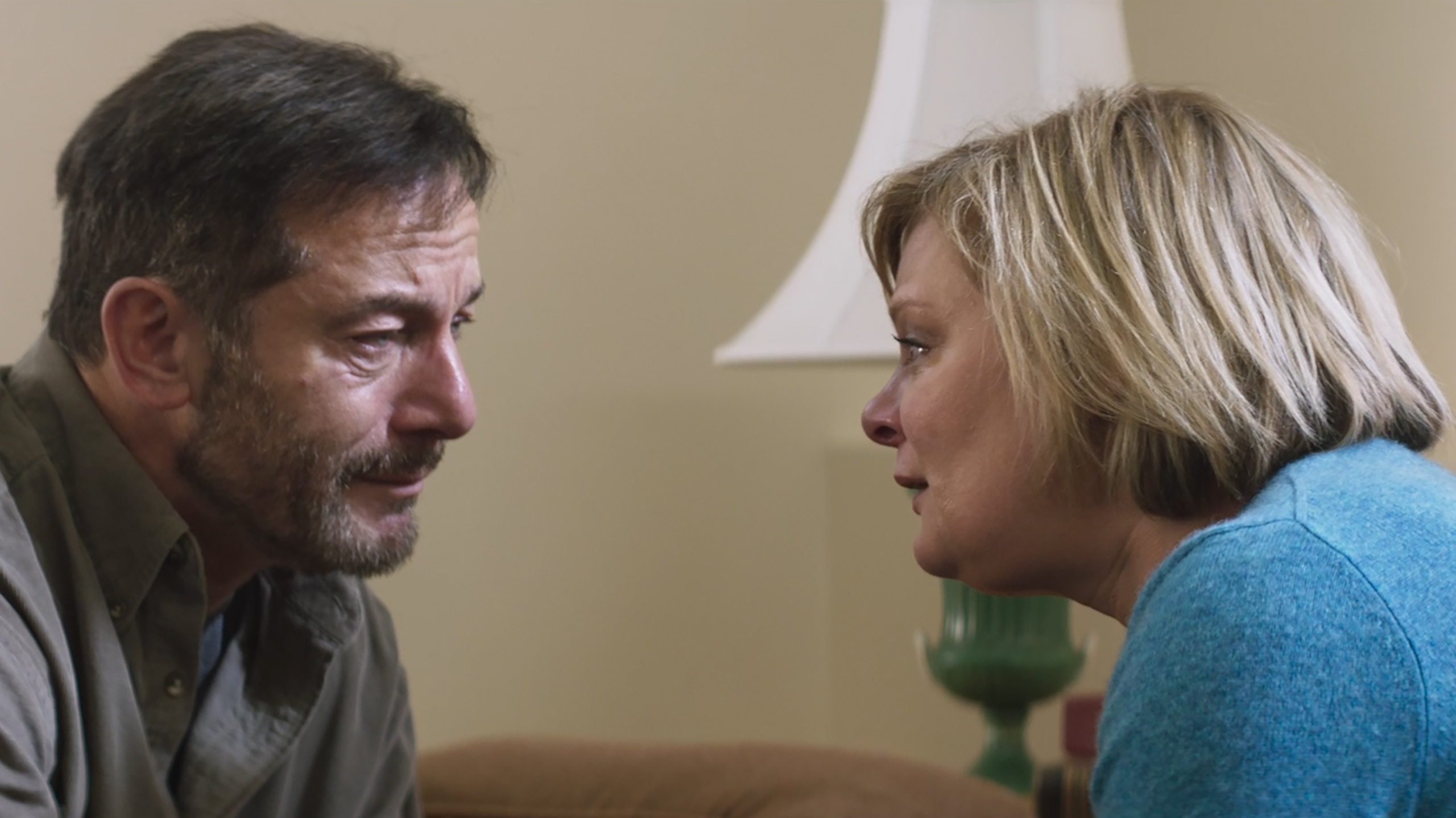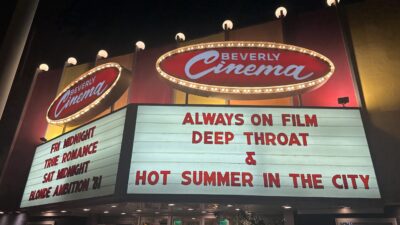Merry-Go-Round Magazine is still deep in the weeds at the 2021 Sundance Film Festival!
We’re more than halfway through the week at Sundance, and the running theme across many of last weekend’s films has been, “Remember that pandemic that we’re in?” The heaviness of the constant isolation reminders still has me feeling weighed down, much like how my couch cushions must feel after these last 48 hours of me not leaving my living room. But, unexpectedly, two films, which couldn’t be more different, brought me revelations of connectedness and community. Today, we enter the expansive and epic fantasy world of Karen Cinorre’s feminist epic MAYDAY, and the intimate, heartbreaking character drama MASS from actor/director Fran Kranz.

MAYDAY
Director: Karen Cinorre
When MAYDAY was pitched to me as a female-directed sci-fi adventure about a soldier sisterhood luring men to their death in an endless war, it took me all of two seconds to purchase my ticket. With a talented cast featuring Grace Van Patten and my personal girl crush du jour, Mia Goth, my hope was that this would be like Peter Pan for 20-something sapphic women, as I am their exact target demographic. And while I wasn’t that far off, I was slightly underwhelmed. Speaking to the Peter Pan comparison, the film reminded me of how I felt watching the 2020 interpretation, WENDY, from director Benh Zeitlin: the ideas were all there, but the execution of the vision felt spread thin and directionless, like it was trying to accomplish too much. The core story, while compelling, suffers from a clunky script and abrupt editing. There are some absolutely stunning shots of our ragtag women skipping over large rocks in a straight line like the Lost Girls of Neverland that truly brought a smile to my face, but were cut short by underwhelming action sequences. I still don’t quite understand the world they live in or the war they were fighting, and that lack of understanding left me indifferent towards the stakes; MAYDAY’s girl power feminism is heavy-handed in some ways, and light on substance in others.
And yet, I was still inexplicably drawn to the film. Perhaps because my generation grew up with groups of young men going on adventures a la THE GOONIES and STAND BY ME, seeing this concept executed with young women was a breath of fresh air I didn’t know I was clamoring after. The performances are electric and fresh, specifically by Goth, who balances her swagger with a sweetness, as if she were a modern day Siren of Greek epics. The score is atmospheric and inspired, and there’s also a very strange (almost misplaced) ballet sequence that could seem like a strike against the film, but I instead found it utterly charming in its strange whimsy: I kept waiting for MAYDAY to really up the weird factor, and it finally delivered. I could see this film becoming a cult classic for the new generation, and I see potential for many women cosplaying as Gert at future Comic Cons. MAYDAY is a fun romp, just don’t think about it too hard.

MASS
Director: Fran Kranz
MASS begins with a chipper church coordinator trying to rearrange an empty Sunday school room—the room our two families, and we as viewers, will live in for most of the film to unpack a traumatic and complicated dynamic. One set of parents are the victims of child loss at the hands of a school shooter. The others are the parents of the deceased shooter. Every detail of the space is picked over, from the placement of the tissue box and chairs around the table to the ambient noise that penetrates the space. No matter how perfectly neutral they try to make the room, it still doesn’t bring cut-and-dry clarity to what is likely the most difficult conversation our leads will have in their lifetimes. As a theater lover, I’m a big fan of one-room character dramas (12 ANGRY MEN being the most famous example), but unlike many plays adapted to the screen, there is something particularly cinematic about the small movements: the crinkling of brows, the mist forming in the eyes. I could never see this particular story, as is, being told on a stage, as this kind of script is simply not able to play to the back of the house. Kranz brings you in very, very close. Both sets of parents come in with rough expectations for set boundaries, objectives, and plans for what they want to share, but they also come with their own internally biased expectations for the closure they want to feel at the end of the conversation. Anger, judgment, and resentment simmer through awkward silences, and at certain points are brought to full boil. It’s an understandable range of human emotion, yet we as viewers are left with a heavy feeling of discomfort that can be extremely hard to grapple with.
I don’t know what it’s like to lose a child, but I do know what it’s like to abruptly lose a loved one with no sense of closure. You try to pick up the pieces and make it all make sense, trying not to project what the future chapters of their life might have been like. You start internalizing blame and thinking about the what-ifs: what if I had seen the signs sooner? What if I had held them closer? When you find yourself in these places, you find that the five stages of grief are very rarely linear. Throughout MASS, I was reminded of how I’ve processed my own past grief, and how many times I found myself backsliding into denial or anger when all I wanted more than anything was to accept and move on. Our lead actors do an exceptional job of mirroring this raw emotion, with fantastic, gut-wrenching performances that are nuanced and meditative. I expected greatness from the likes of Ann Dowd and Jason Isaacs, who are some of my favorite actors working today, but surprisingly, Martha Plimpton is the stand-out in terms of range and character transformation. Her demeanor shifts from very cold and closed-off to a woman brimming with compassion, forgiveness, and understanding of the universality of pain.
A stand-out moment occurs at the very end, when, after an exhausting and challenging hour of conversation, our leads begin to break away to their separate ways. It is an awkward, clunky end to the meeting—how do you put a bookend on something like that? You can’t. Moments later, Jason Issac’s character overhears the church’s choir practicing in the main chapel. As a professional singer myself, I have heard my fair share of church choirs, and let me tell you—this one isn’t very good. They’re out of tune, their timing is off, and the blend of their voices is imbalanced. But to Issacs, hearing these voices combined, singing about God’s unrelenting love and the power of peacely togetherness, is like listening to a magnificent chorus of angels. It’s a reminder that even the ugly moments of life can be truly beautiful, if you choose to perceive it as such. If you are religious, it is easy to see the ending of the film as a demonstration of the power of God and how bringing together broken humans into a holy space can create a Christlike wave of forgiveness. However, I don’t think you have to be a Christian to have a spiritual experience watching this film. All of us experience loss, pain, grief, anger, but most importantly, each of us experiences love. MASS is not just a grief story… It is a love story.
















Comments